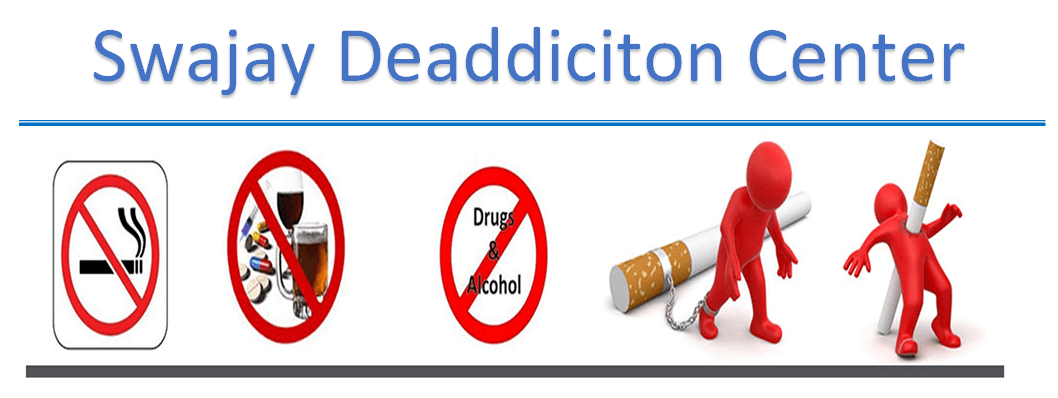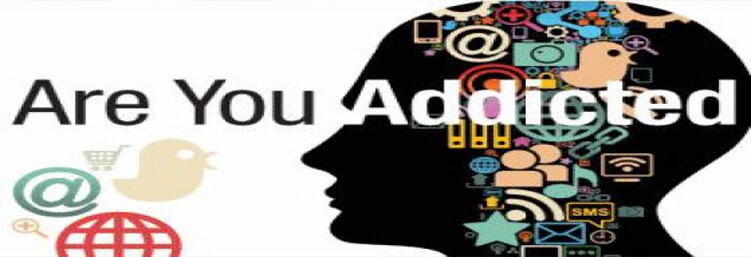
Addiction is one of the most serious concerns for families with member affected. It is a social disease and whole family suffers a lot. We can help for Deaddiction as out-patient basis (home based treatment) or admission. Admission can be for detoxification (withdrawal management) and or rehabilitation as per condition of patient.
Deaddiction as out-patient basis is possible when chances of withdrawal is lesser and patients motivation is good. Patient can visit psychiatrist and counsellors at regular interval for therapy while working and staying in comfort of home. Patients are recommended to attend group therapy sessions at MMI. Counselling of patients relatives is also done to cope with the problems and to help patient remaining sober. Groups for addicted patient's relatives are also held periodically.
Depending on requirement and feasibility patient can be admitted for short term or long term care. Well furnished rooms with all necessary amenities available. Phone and internet use is also allowed. One can do his office work if he has work from home facility. We provide personalised care for each patient. An individualised plan of treatment is formulated for each patient. Considering role of dual diagnosis in addiction patients. That means underlying depression / anxiety/ OCD / psychosis leading to addiction. At MMI we have added advantage of having round the clock psychiatrist leading to better treatment of underlying psychological issues. The psychiatrist is available 24x7 and he directly supervises all the treatment plan and therapies. Option of partial admission with facility to go out of center for few hours.
Treatment plan includes treatment with Medications to decrease Craving, Aversive drugs, counselling, cognitive therapy, behavioural therapy, CBT, REBT, Aversion Therapy, Ketamine Therapy, Group therapy, Art therapy, Activity based interventions, Hypnotism, Motivational Enhancement Therapy, Family therapy, Meditation, Yoga, etc. once discharged patient can follow in opd for further therapy. Patients are recommended to attend group therapy sessions at MMI. Counselling of patients relatives is also done to cope with the problems and to help patient remaining sober. Groups for addicted patient's relatives are also held periodically. (Click here for details)
Stopping of any substance of addiction leads to withdrawal symptoms. Alcohol withdrawal causes tremors, sweating, weakness, nausea, retching or vomiting, agitation, headache, insomnia, visual, tactile or auditory hallucinations or illusions. Sometimes it may lead to convulsions (Seizures). Other substances lead to similar type of withdrawal problems. Very few de-addiction centres have the facility to deal with such withdrawal states. With an experienced psychiatrist our setup is fully equipped for prevention and management of such withdrawal problems.
Counselling is the main conventional treatment for any kind of addiction. We are equipped with a team of well experienced counsellors. Counselling sessions are scheduled as per the patients’ problems and need. Sessions are planned according to the needs and personality traits of the patient and each characteristic is carefully considered and reconsidered to bring about a change. Various means of therapy are used until the patient gives a desired response. A sufficient time is thus dedicated to each patient. Counselling consists of knowledge about the disease, its treatment and ways or means to instigate them into his behaviour. Discussions regarding thought, action and emotion are given importance and we try to create a strong and potent awareness of his responsibility towards his treatment.
Rational emotive behavioural therapy is a very effective and simple technique. REBT is an action-oriented approach to managing cognitive, emotional, and behavioural disturbances. It is proved to be very effective for patients with addiction problems. It helps to eliminate the beliefs that led them to addiction in the first place. Our counsellors have special experience in REBT based intervention for addiction patients.
A different approach of counselling is the Motivational Enhancement Therapy (MET). This is designed to facilitate patients in making up their mind about getting involved in the treatment and end their use of drugs. It is a process by which one attempts to bring about a change which comes from within. With systematic approach, step by step plan is formulated to reinforce patients motivation. Tactics to handle risky situations are planned out with the patient. Changes are then supervised and reconsidered and means to maintain abstinence are discussed. Sometimes relatives are also invited in the sessions for better results.
Addiction is a multi-factorial disease. In patients where neuro-biological factors are more responsible, medicines are very effective to decrease craving. Some patients are unable to stop drinking secondary to depression or anxiety. In such patients medication gives a great relief.
In some patients it is difficult to break the cycle of addiction due to pleasure associated with use of substance / alcohol. Taking substance is associated with reward that is felt within and hence patients find it difficult to stay away from substance. For such cases we can use aversive medicines which break the pleasure associated with addiction. This medication also helps due to fear of distressing effects if substance of addiction is taken.
Apart from medication some other aversive stimuli can be used to break the pleasure associated with substance use.
Ketamine has been found to be “an effective tool in therapy for addiction and depression.” Use of ketamine as an alternative drug and therapy for alcoholism was common for nearly 30 years. Administered under clinical conditions to addicts who also suffered from chronic depression has given good results. Combined with effective professional psychotherapy the drug has shown positive outcomes. In studies it has shown a major boost in the level of anhedonia, depression and anxiety in recovering addicts with Ketamine therapy.
Group therapy is the most approved and effectual remedy for alcoholics. It plays a major part in recovery and maintenance of sobriety. It includes a variety of experiences like sharing, role play, games, skill development and discussions about similar problems with similarly situated individuals, relaxing and learning to use all kinds of tools. Groups also include psycho education and practise of some therapies. Training patients to prevent relapses by learning about the mechanics of addiction and substance abuse is also practised.
Cognitive-behavioural therapy groups are used to make patients aware of their harmful traits and replacing them with other healthier ways of behaving and thinking.
Support groups play an important part in teaching them to support each other and bring about productive changes.
Group therapy helps in building interpersonal relationships and aid members rebuild their addiction free life with a new outlook and ponder over it without the influence of drugs.
These groups are specifically planned to address certain pertinent issues the group faces, as individuals and as a group. It is an interesting fusion of art, emotion, imagination, fun, creativity with awareness of problems. It also tries to bring about the solutions from the patients to ensure their understanding. It is all about developing patience, sensitivity to daily issues, improve their inadequacies and lack of sensitivity. We try to make them perceive their own actions through the eyes of others thereby giving them a new way of looking at life. These groups also help to create and maintain positivity throughout. It is the best way to encourage them to exceed themselves in their efforts for recovery.
People with extreme anxiety or tension find it difficult to settle down. In such cases keeping them active in some work is a better and faster way of calming them. This is a welcome diversion for them which is therapeutic as well as informative. The work given can be of a routine repetitive kind in case of extreme anxiety or more intellectual needing more effort which is informative. It helps in stimulating the patient mentally and physically.
Hypnosis or hypnotherapy is a method of treatment that uses relaxation techniques to induce suggestions upon the subconscious mind. Studies have shown that use of hypnotism along with other modalities to be more effective. It is particularly more effective when dealing with patients with substance abuse disorders, behavioral addictions.
Families of addicts suffer the most. Many studies have shown a strong connection between disrupted families and addiction. Most of the addicts go through variety of psychological stresses which includes unemployment, marital discord, physical and psychological abuse, depression and physical illness.
This family goes through the pangs of addiction without the substance. It is equivalent to a torture. A similar pattern of behaviour and thinking can be eventually seen between the addict and his family. They are counter dependent on each other and a parallel set of symptoms are evident. The family becomes as emotional, confused, angry, anxious and indecisive as the patient.
The family members play various roles with the sole intention of ‘stopping’ his drinking or drug abuse. They may become ‘saviours’ by helping the addict to get on his feet every time he falls, or even helping him before he is about fall. This makes the addict even more dependent. Some try to take things in their hands believing that he needs monitoring in his life and put restrictions on him, thereby encouraging him to rebel or manipulate them for his use. While trying to protect, rescue, control or enable they make him incapable of handling his own life and the disease amplifies into a more difficult mode.
The family therapy is conducted to teach them how their ways of helping are more traumatic and ineffectual and train them to handle things with a rational approach. The ill effects on their life and the children are discussed in detail. They are encouraged to undergo therapy. The concept of ‘detachment’ and efficient ways of commanding the situation are taught. Basically they are made aware of the disease concept of addiction and the treatment.
Yoga and Meditation are of equal importance for an addict. He usually is not used to exercise. Stretching your muscles and strengthening them, at the same time healing the body in many ways is achieved by Yoga. Meditation is important for them to be focussed and relaxed. Exercise also helps in release of certain chemicals in the brain which can be soothing and pleasurable as well as nurturing for his mind and body. It can accelerate the effects of medicine and psychotherapy.

Internet addiction is recognized and included in DSM 5 of classification system of psychiatric disorders. Now internet is integral part of daily life for most of people. With easy availability and unrestricted access incidence of internet addiction is increasing. Mainly teenagers and young adults are falling in this trap. Not all internet use is problematic but excessive and compulsive use leading to impairment and distress definitely needs treatment.
Some important signs and symptoms of internet or gadget addiction
Mainly internet addiction involves